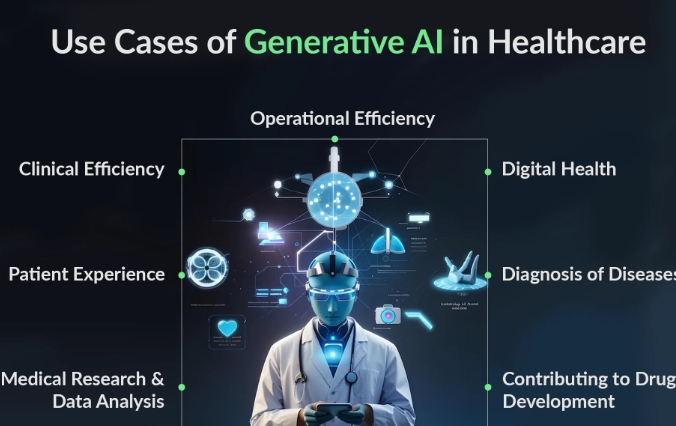Artificial Intelligence (AI) is transforming the healthcare industry, especially in hospitals, by improving patient outcomes, increasing efficiency, and reducing costs.
Enhanced Diagnostics:
AI algorithms can analyze medical images, such as X-rays, MRIs, and CT scans, with greater accuracy and speed than human radiologists.
Personalized Treatment:
AI can analyze patient data, such as genetics, medical history, and lifestyle, to recommend personalized treatment plans that are tailored to each individual.
Predictive Analytics:
AI can predict which patients are at risk of developing certain diseases or conditions, allowing hospitals to intervene early and prevent further complications.
Streamlined Operations:
AI can optimize hospital workflows by automating administrative tasks, managing resources efficiently, and predicting patient flow to reduce wait times and improve patient satisfaction.
Remote Monitoring:
AI-powered devices can monitor patients remotely, allowing healthcare providers to track vital signs, detect anomalies, and intervene promptly if a patient’s condition deteriorates.
Drug Discovery:
AI algorithms can sift through vast amounts of data to identify potential drug candidates, speeding up the drug discovery process and bringing new treatments to market faster.
Challenges:
While AI offers many benefits to hospitals, there are challenges to overcome, such as data privacy concerns, regulatory hurdles, and the need for healthcare professionals to embrace and trust AI technology.
Overall, AI is revolutionizing healthcare in hospitals by improving diagnostics, personalizing treatment, predicting outcomes, streamlining operations, enabling remote monitoring, and accelerating drug discovery. As AI continues to advance, it has the potential to transform healthcare delivery and improve patient care on a global scale.

